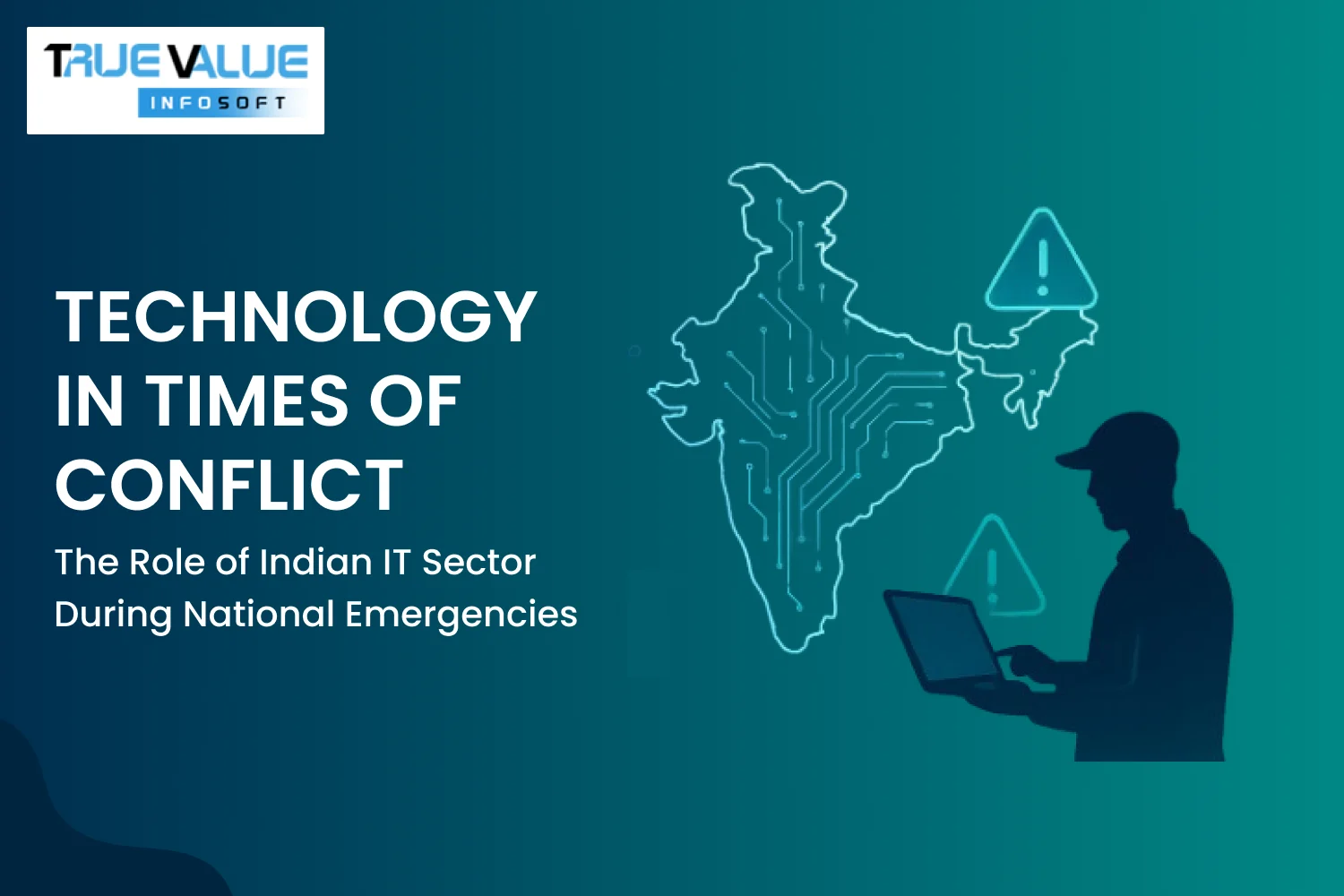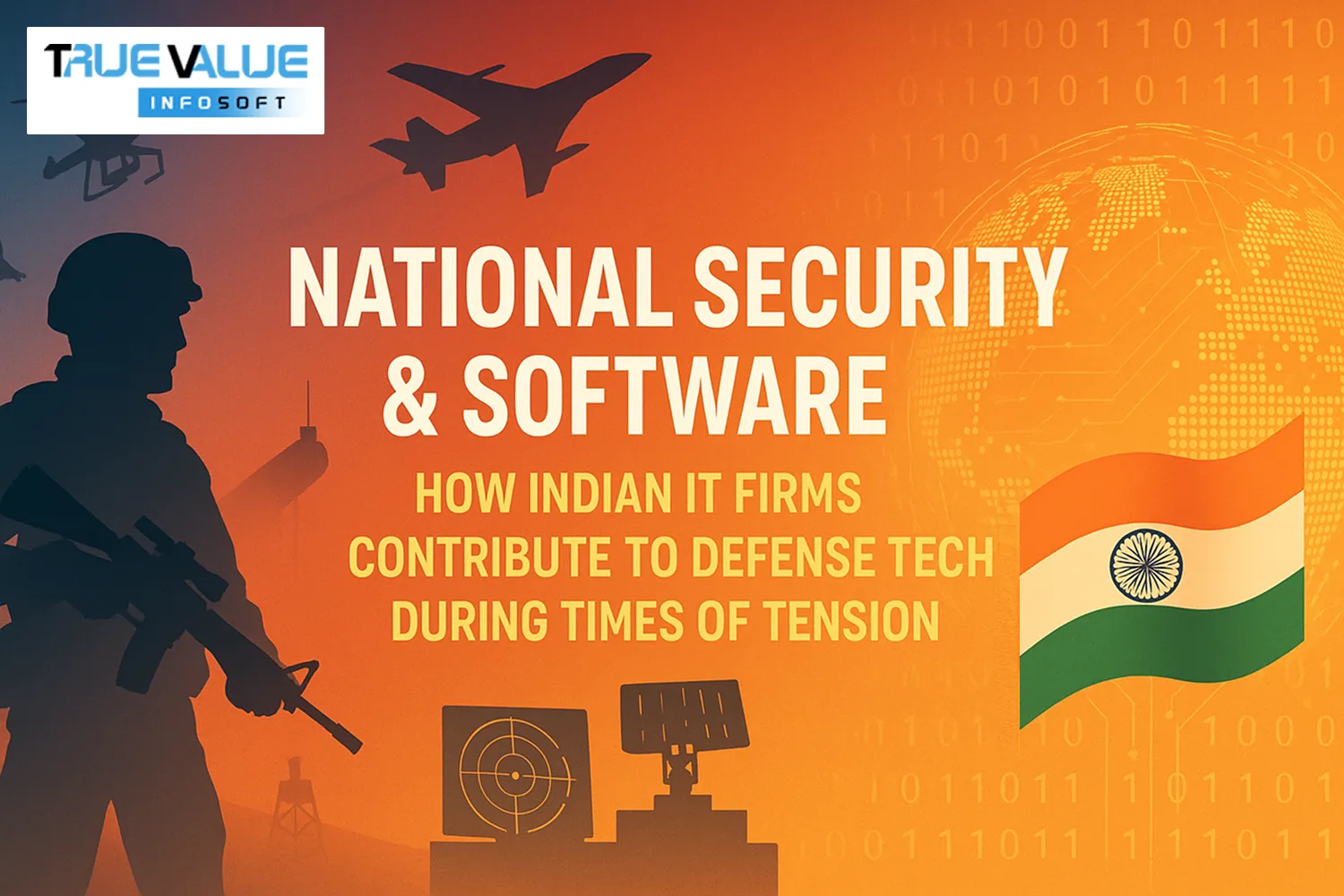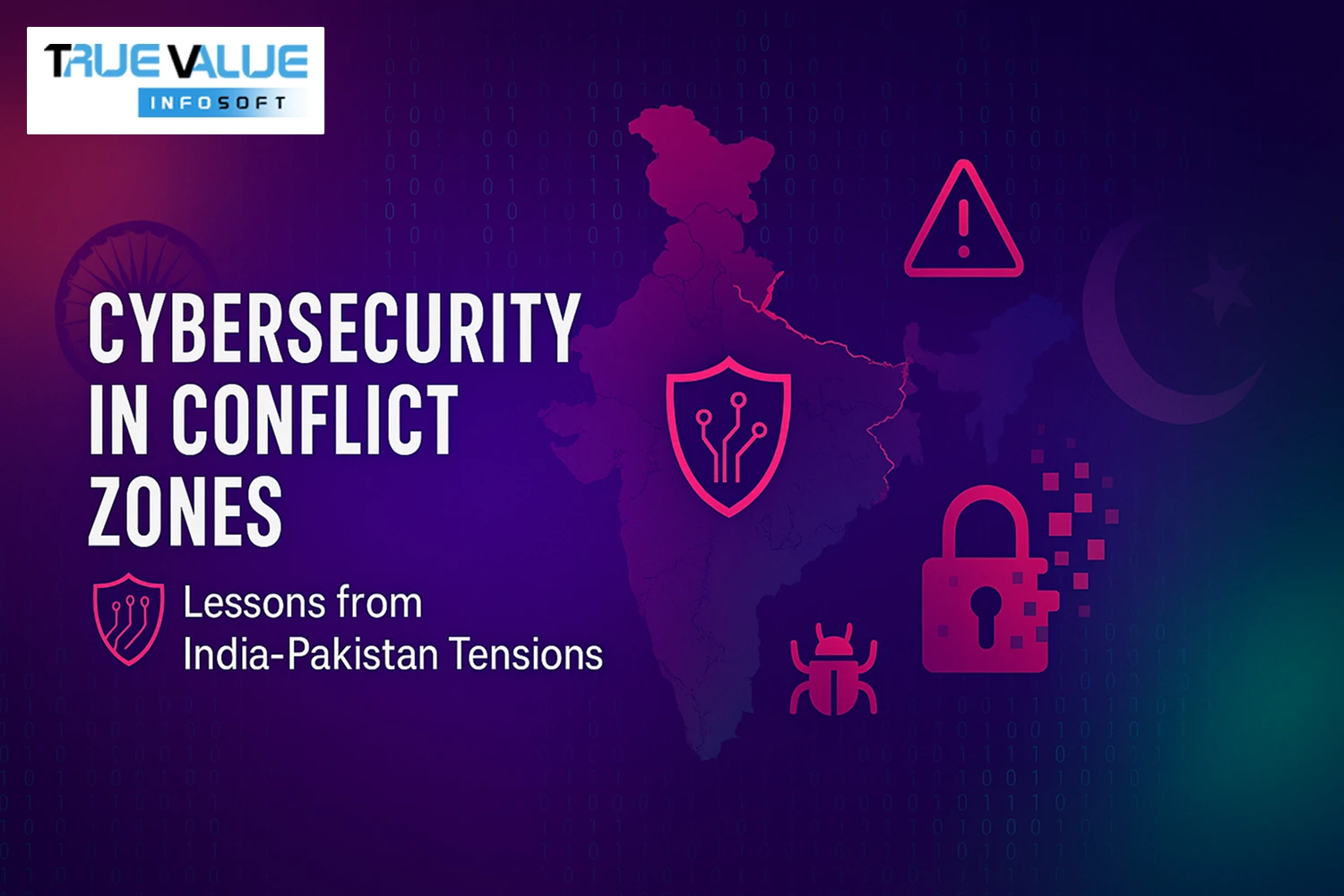Introduction
What happens when a nation finds itself in the throes of a sudden conflict—be it a war, a natural disaster, or a nationwide cyberattack? Who steps up to keep the wheels of communication, defense, and civilian infrastructure running? In today’s hyperconnected world, the answer increasingly lies in the hands of the technology sector. India, being one of the largest IT hubs in the world, possesses a powerful digital backbone that not only fuels its economy but also serves as a strategic asset during national emergencies.
From cyber defense systems and real-time surveillance tech to critical software for disaster response, the Indian IT industry plays a silent yet crucial role when the country is under duress. Among the key players, True Value Infosoft stands out as a leader in developing intelligent, scalable, and resilient solutions that support both government and civilian needs in critical moments. This article delves into how India’s IT sector, spearheaded by innovators like True Value Infosoft, becomes a frontline responder during times of national emergencies. We explore its historical contributions, current capabilities, and the immense potential it holds in shaping a secure, tech-enabled future for the country.
- https://truevalueinfosoft.com/operation-sindoor.html
- https://truevalueinfosoft.com/india-pakistan-war-it-impact.html
- https://truevalueinfosoft.com/whatsapp-cybercrimes-indo-pak-conflicts.html
1. Historical Context: IT Sector and National Crises
India’s IT industry has a history of stepping up during crises. From supporting disaster management systems during natural calamities to helping the government manage the COVID-19 pandemic with digital tools, IT firms have been instrumental.
During the Kargil War in 1999, IT-enabled systems played a part in communication and surveillance. The 2008 Mumbai attacks prompted a major digital transformation in national security architecture. More recently, the sector played a major role in developing contact tracing apps like Aarogya Setu during the pandemic.
2. Modern Warfare and Cyber Conflict: A New Battlefield
In the 21st century, warfare has transcended physical battlegrounds. Cyber warfare, disinformation campaigns, and digital espionage are modern-day tools used by adversaries. The Indian IT sector is increasingly on the frontlines:
- Cyber Defense Systems: Indian IT companies help fortify networks against foreign cyber intrusions targeting critical infrastructure such as power grids, financial institutions, and defense communications.
- AI Surveillance and Intelligence: Advanced technologies developed by Indian firms aid in border surveillance using AI-driven drones, face recognition systems, and predictive analytics.
- Data Protection & Encryption: Indian IT plays a role in ensuring encrypted, secure channels for government and military communications.
3. True Value Infosoft’s Strategic Contribution
True Value Infosoft exemplifies how private tech enterprises can contribute to national resilience:
- Custom Software for Defense and Disaster Management
- AI & ML Solutions for Strategic Prediction and Pattern Recognition
- Real-Time Data Visualization Platforms for Emergency Response Teams
- Mobile and Cloud-Based Coordination Tools for Defense Personnel
Through these initiatives, True Value Infosoft helps bridge the gap between defense needs and technological capability.
4. Maintaining Continuity: Ensuring IT Infrastructure Resilience
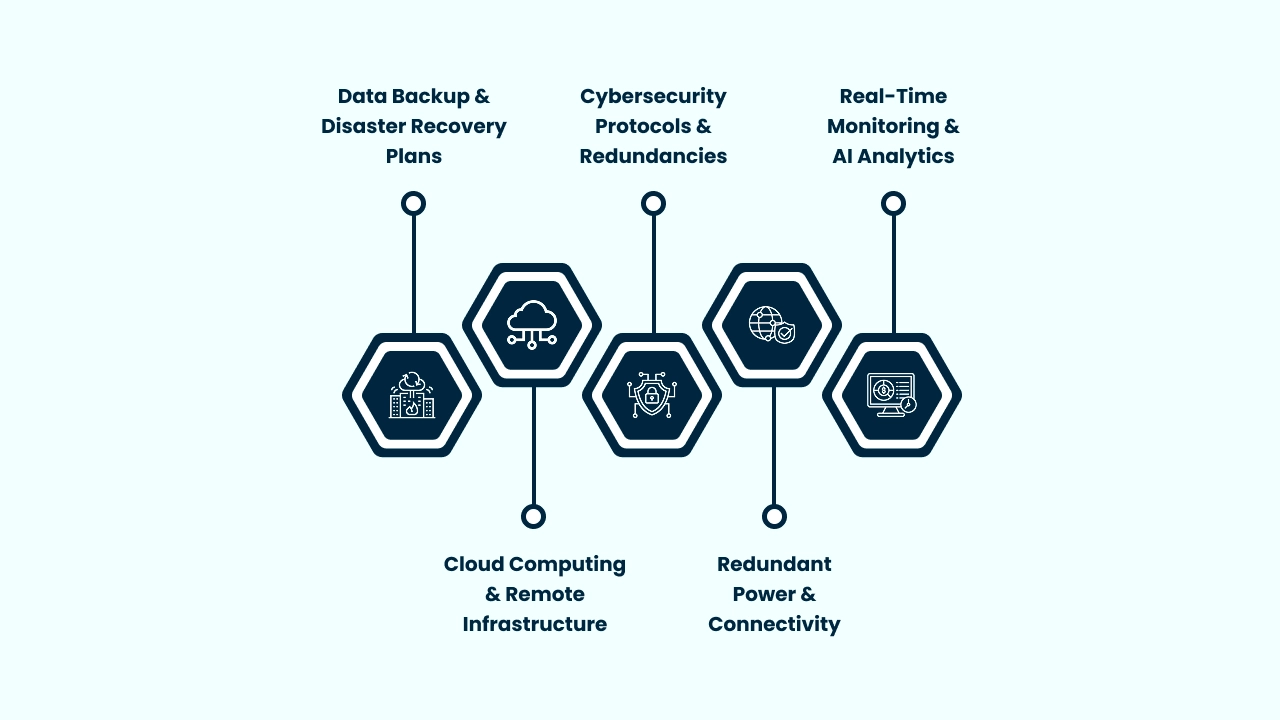
During times of national emergencies or conflicts, the resilience of a country’s IT infrastructure becomes a top priority. India’s IT sector, with companies like True Value Infosoft at the forefront, plays a critical role in ensuring business continuity, government functionality, and public safety. Here’s how this is achieved:
Data Backup & Disaster Recovery Plans
IT companies implement robust disaster recovery (DR) and business continuity plans (BCP) to safeguard critical data and minimize downtime during power outages, cyberattacks, or physical destruction of assets.
Cloud Computing & Remote Infrastructure
Cloud solutions allow data and systems to be decentralized, ensuring that operations can continue from remote locations even if local servers are compromised.
Cybersecurity Protocols & Redundancies
With a sharp rise in cyber threats during conflicts, Indian IT firms strengthen firewalls, enhance endpoint security, and run 24/7 security operations centers (SOCs) to prevent, detect, and respond to breaches.
Redundant Power & Connectivity
Backup power systems and multiple internet lines help keep systems running when conventional infrastructure fails, particularly in war zones or disaster-struck areas.
Real-Time Monitoring & AI Analytics
AI-powered tools continuously monitor networks for irregularities, enabling preemptive responses to disruptions and reducing the risk of large-scale IT failures.
5. IT Sector and Civilian Safety Applications
Indian IT companies also develop civilian-facing applications during emergencies:
- Emergency Alert Systems
- Public Health and Resource Distribution Apps
- Crisis Communication Platforms (SMS, Social Media Integration)
- Location-Based Tracking and Evacuation Assistance Apps
These tools are essential to manage public sentiment and logistics during high-risk periods.
6. Collaborations with Government and Military Agencies
India’s IT ecosystem thrives on public-private collaboration, especially during emergencies:
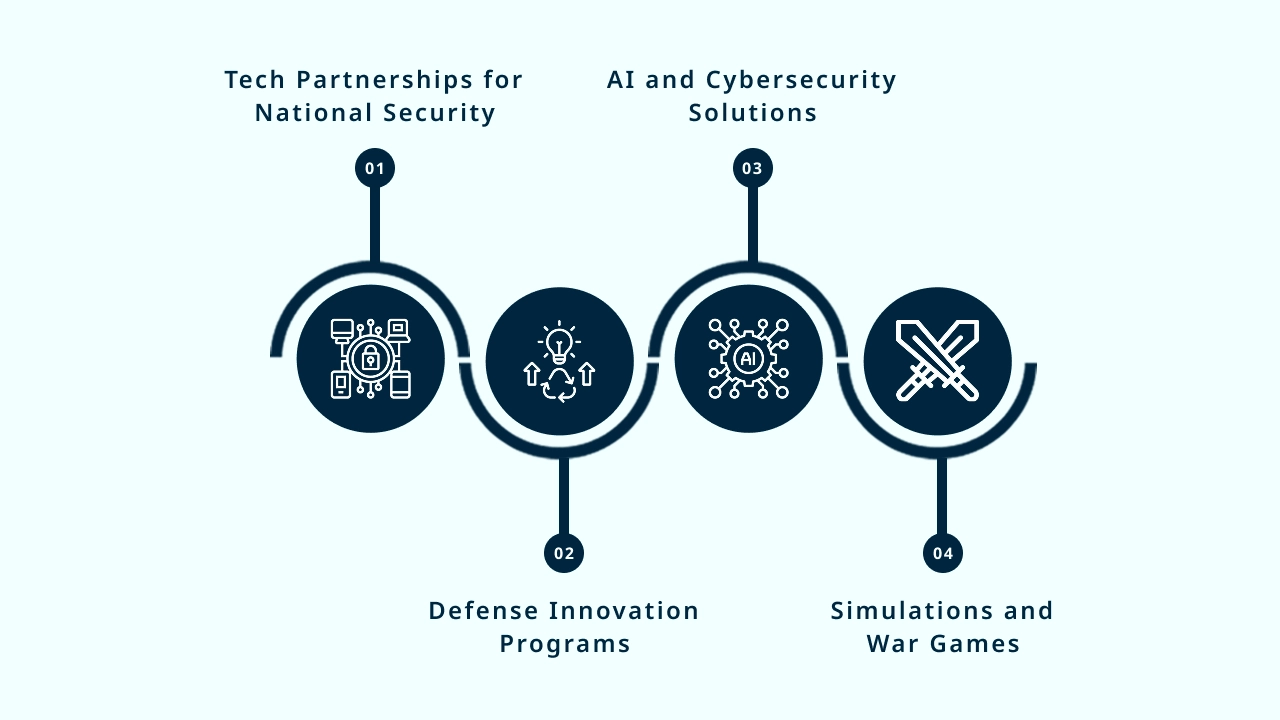
- Tech Partnerships for National Security: Indian IT companies, including True Value Infosoft, collaborate with the Ministry of Defense (MoD) and defense organizations like DRDO (Defence Research and Development Organisation) and ISRO (Indian Space Research Organisation) to develop cutting-edge solutions for national security.
- Defense Innovation Programs: IT firms contribute to defense innovation through government initiatives such as the Defence Innovation Organisation (DIO) and Atmanirbhar Bharat. These programs foster the creation of indigenous defense technologies, with tech companies playing a key role in R&D and product development.
- AI and Cybersecurity Solutions: Indian IT companies provide AI-driven intelligence solutions for surveillance, predictive analytics, and cybersecurity defense. These technologies are integral in safeguarding critical infrastructure, including communications, power grids, and military assets.
- Simulations and War Games: IT firms assist in running simulations and cybersecurity drills to prepare for cyber threats and physical conflicts, ensuring military preparedness in crisis situations.
True Value Infosoft, for instance, has contributed AI models for predictive resource planning during simulated emergency drills.
7. Workforce Mobilization and Skilling in Emergency Tech
The IT workforce also adapts swiftly in times of national emergency:
- Rapid Deployment of Developers to Mission-Critical Projects
- Upskilling Teams on Cybersecurity, Blockchain, and AI for National Use
- Hackathons for Innovation During Crises
- Creating Multilingual Support Platforms for National Use
This dynamic agility ensures India’s tech response is both robust and timely.
8. Role in Combating Disinformation and Fake News
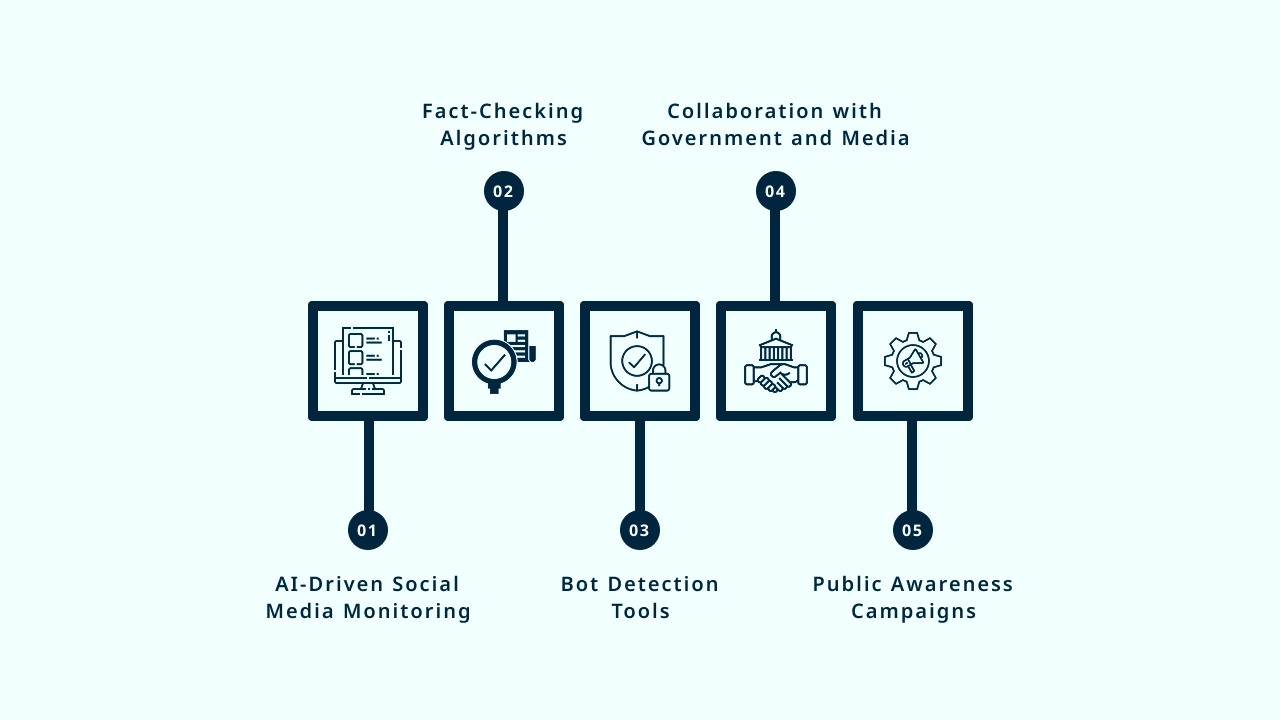
A major challenge during war or emergencies is the spread of fake news. IT companies, with expertise in NLP and AI, are at the forefront of:
Role in Combating Disinformation and Fake News
- AI-Driven Social Media Monitoring: Indian IT companies, including True Value Infosoft, deploy artificial intelligence tools to monitor social media platforms in real-time. These tools can identify and flag disinformation, enabling faster response to false narratives.
- Fact-Checking Algorithms: Leveraging machine learning, Indian IT firms create automated fact-checking systems that cross-reference news articles, social media posts, and videos against credible sources to determine their veracity.
- Bot Detection Tools: AI-based algorithms help detect and mitigate fake accounts and bots that spread misleading content. These systems can analyze patterns in user activity, stopping the amplification of disinformation.
- Collaboration with Government and Media: Indian IT companies often collaborate with governmental bodies and media outlets to facilitate the rapid dissemination of verified information, ensuring the public has access to reliable news during crises.
- Public Awareness Campaigns: IT companies also develop platforms and apps aimed at educating the public on how to recognize and report fake news, empowering citizens to become vigilant in the digital age.
Such tools are crucial in maintaining national morale and accurate public information.
9. Economic Stability and Global Client Retention
While conflict can reduce global investor confidence, the Indian IT sector works proactively to assure clients:
- Business Continuity Plans (BCP) with Alternate Locations
- Onshore Talent Deployment for High-Risk Projects
- Enhanced Digital Security Audits
- 24/7 Global Support Centers
True Value Infosoft maintains robust international project pipelines through transparency, digital resilience, and continuous delivery standards.
10. IT-Driven Humanitarian Efforts
Beyond defense, Indian IT firms support humanitarian efforts through:
- Crowdsourcing Platforms for Relief Donations
- NGO Tech Solutions for On-Ground Coordination
- Health Tech Solutions for Crisis Zones
- Analytics Platforms for Monitoring Migration and Shelter Requirements
These efforts amplify the reach and impact of relief agencies.
11. Post-Conflict Recovery and Reconstruction
Post-emergency, technology becomes a key enabler in rebuilding efforts:
- Smart City Reconstruction Models
- Digital Land Record Systems for Restoring Property Rights
- Telemedicine and Education Platforms for Rehabilitation
- Mental Health and Counselling Chatbots for Affected Populations
IT companies, including True Value Infosoft, can help governments reboot public systems efficiently.
12. Future Readiness: Preparing Indian IT for National Security Integration
As India anticipates future conflicts, the IT industry must evolve:
- R&D in Quantum Computing and Cyber Defense
- Cross-Border Digital Alliances and Cyber Treaties
- Secure Public Cloud Infrastructure for Critical Data
- Simulation Labs for AI-Driven Conflict Prediction
True Value Infosoft is actively investing in next-gen tech to stay ahead of threats and ensure national resilience.
Conclusion
Technology is not just an enabler but a frontline defender in today’s conflict scenarios. The Indian IT sector, with players like True Value Infosoft, holds the responsibility of maintaining economic, civilian, and defense continuity. From developing mission-critical tools to safeguarding digital infrastructure, its role is indispensable.
As global threats grow more complex, India’s digital backbone must be strengthened further with investment, innovation, and policy support. In the next conflict or crisis, it won’t just be boots on the ground—it will be bytes in the cloud that make the difference.
FAQs
Through cybersecurity, communication platforms, defense tech solutions, and public utility apps.
True Value Infosoft can develop AI-based defense tools, real-time data dashboards, and emergency coordination platforms.
Yes, with resilient infrastructure, distributed data centers, and strong business continuity plans.
Using AI-driven social media monitoring, fact-checking systems, and collaboration with media and government.
AI, quantum computing, blockchain, cybersecurity, and drone technology will dominate future defense-tech innovations.
